In Keith Knight’s “Woke”, lead character Keef is jolted into consciousness of systemic racism and injustice. Photo: HULU
It’s daylight on a weekday in San Francisco’s Richmond District.
As myriad people hustle about on a busy street, a mid-30s African-American pedestrian stops at a utility pole, removes a stapler from his messenger bag and staples a flyer on the pole, advertising an upcoming gig he and his bandmates will be playing.
Suddenly, without a second to process, a handful of San Francisco Police Department officers are yelling at the brother to drop the stapler, while pointing guns at his face. Before he can figure out why he’s being blitzed, one of the officers lays a ferocious Hugh Greenwood-like tackle on him, forcefully pinning him down.
Was stapling while black now a crime?
Keith Knight, a nationally-syndicated newspaper cartoonist and unwitting recipient of the unwanted police attention, had to have been wondering.
He heard radio chatter that he wasn’t the alleged mugger the cops were looking for, so then, without any apology for jumping to conclusions, or even a blithe, “have a nice day,” the officers moved on, while Knight remained stunned, battered, bruised, humiliated, and traumatized.
Though that scene played out 20 years ago, Knight is processing it through telling that cathartic story through a pseudo-autobiographical protagonist named “Keef” in the new comedic TV series, “Woke,” produced by Sony Pictures Entertainment Television and airing on American streaming service Hulu.
Sony Australia had no comment on whether or when the show may air in this country.
A man’s awakened social consciousness intertwining with post-traumatic stress isn’t traditional TV comedy gold, but “Woke” carries on a centuries-old theme of resilient black American storytelling in the face of oppression and marginalization: laughing to keep from crying and turning pain into parody.
“It’s at once hysterically funny and tragic,” says Knight, of the show he co-created and co-executive produces with screenwriter Marshall Todd. “That’s the black experience in America.”
“Woke” smartly tackles racism, ethnic identity, artistic integrity, sexuality, socioeconomics, and most importantly, justice. Add surrealism and satire to the mix, and the show joins an ever-expanding cache of avant-garde, socially conscious African-American works, including 2018 films, such as the Oscar-nominated, “Get Out” and the critically acclaimed, “Sorry To Bother You.”
Ever hear someone mysteriously developing supernatural abilities to see and hear talking rubbish bins, beer cans, Bibles, paper bags, and Sharpies (markers)?
Through puppetry and digital animation, that’s what happens to the show’s protagonist, Keef Knight (Lamorne Morris) after the police assault jolts him into being “woke” about systemic racism and injustice.
“It was Marshall’s idea,” says Knight, who, in case you’re wondering, was already “woke” before being accosted by police. “He thought: ‘What if Keef’s third eye was open? What if inanimate objects become animate’?”
“Woke” lands some very recognisable African-American talent to voice the objects, including comedian Cedric the Entertainer, and actors Keith David and Cree Summer.
But Keef’s awakening happens at the worst – or, depending on your perspective, best – possible time.
His innocuous newspaper comic strip, “Toast ‘N’ Butter” is about to blow up: national syndication, support and funding from a deep-pocketed corporation, and endless commercial opportunities.
But after one of the white corporate suits tells Keef, “no one will ever accuse you of being too black,” and Keef’s talking Sharpie urges him to fight the power, Keef has an epic, career-killing, meltdown while addressing a roomful of fans at a comic convention, that goes viral.
And that’s when the real fun begins.
Fortunately, Keef’s two flatmates – Gunther (Blake Anderson), a frizzy-haired, white, politically progressive stoner; and Clovis (T. Murph), a James Harden-like-bearded, black, hyper-macho, cynical, lothario – are as hilarious as they are supportive.
“Clovis is that grounded brother who says: ‘I’m progressive, but not that progressive’,” says Todd, who created and developed the character. “Clovis is also the one on the show who tells Keef about reality, saying: ‘Woke is broke’.” (Translation: Being a socially aware and outspoken African-American artist means risking offending white sensibilities, and thus sabotaging commercial success).

Through the eight-episode first season, Keef navigates a veritable minefield of social issues while undergoing his own existential crisis; exits a stable, romantic relationship with a long-time black girlfriend, and enters a mercurial one with a Kiwi artist, played by Auckland-born-and-bred actress, Rose McIver.
All the while, the underlying post-traumatic stress of the police episode bubbles underneath the surface for Keef, until it boils over in the last two episodes, fuelled by – of all things – an escaped koala from San Francisco Zoo, and the officer who tackled Keef resurfacing to sue him for defamation in one of his “woke” cartoons.
That episode’s title? “Blue Lies Matter.”
“I like the satire aspect of the later episodes,” Knight says. “The cop being triggered by the comic strip and the metaphor of the koala getting loose.”
In the finale, during a tense, pivotal verbal exchange between the officer and Keef, the officer’s statement will likely raise the hackles of every black viewer. “You don’t understand,” the officer begins, agitatedly, “we’re under siege out there.”
“You’re under siege?” Keef replies, incredulously, as if he’s asking for every African-American, after months of heightened police and vigilante aggression which has either caused death or serious injuries to brothers and sisters from Ahmaud Arbery, Breonna Taylor, and George Floyd to Elijah McClain, Rayshard Brooks, and Jacob Blake, and countless others.
The “New York Times” recently reported that since 2015, police officers have killed nearly 50 black women. Only two charges have been filed as a result.
“[The officers] lie and nothing happens to them,” says Knight, who now lives in Chapel Hill, North Carolina, and whose “Knight Life” comic strip has earned him accolades, such as the Harvey, Glyph and Inkpot Awards. “If they get fired from one police department, they get a job in the next town over. [Their crimes] are never public record.”
There are no Floyd references in “Woke,” because filming wrapped at the end of February — a fortnight before the COVID-19 pandemic forced most of the world to shut down, and three months before Floyd was stopped by police on that fateful day in Minneapolis. But there didn’t have to be for Keef’s dramatized situation to resonate.
PLEASE HELP US CONTINUE TO THRIVE BY BECOMING AN OFFICIAL FOOTYOLOGY PATRON. JUST CLICK THIS LINK.
“If there’s a Season 2, it will be obvious on the show that we live in a post-George Floyd world,” Knight says.
“Racism in America is an evergreen. People outside the US have more of an appreciation for black Americans than white America does. That’s why so many artists over the years, from author James Baldwin to Jimi Hendrix got out, because of all the BS they had to deal with. I honestly believe that the world should consider saying to America: ‘Listen, we’re gonna boycott you like we did with South Africa [in the 1980s] until you make some real changes’.”
Todd, Knight’s co-creating, executive producing partner on “Woke,” who penned the screenplay for the 2002 hit film, “Barbershop,” also is no stranger to being racially profiled nor police brutality.
Seven years ago, Los Angeles police exhaustively searched for a fugitive: a fired black former officer named Christopher Dorner, wanted in connection with two homicides and a subsequent kidnapping of a married couple.
Dorner eventually committed suicide in a rural cabin to avoid police capture. Unfortunately for Todd, while Dorner was being sought, he was about Dorner’s age and like Dorner, bald. As Todd walked out of his home in Glendale, a northern Los Angeles suburb, into his driveway to greet his wife, he got the surprise of his life.
“A woman cop was holding an AR-15 rifle in my face,” Todd recalls.
“I’m instinctively backing up and my wife is saying to me: ‘Stop moving’. I looked up and saw a SWAT officer on my porch and four more on my front lawn. I didn’t hear them roll up on me at all, so my reaction in my head was: ‘Shit, they’re good’.
“When they saw it wasn’t me, they didn’t say sorry. They just left. ‘Gee, that was fucking crazy,’ I thought. My white neighbour told me she’d sue them. I just told her: ‘It’s over, I’m alive’.”
While Todd and Knight eagerly await word from Sony Entertainment on whether “Woke” will get a second season, they say they want to double and triple down on what they believe they did well – giving a voice and humanity to previously unheard and unseen survivors of police aggression, while keeping the show’s biting wit.
“The show expresses the pain of what Keef is going through,” Todd says. “We’re not laughing hurt away. But a spoonful of sugar makes the medicine go down.”

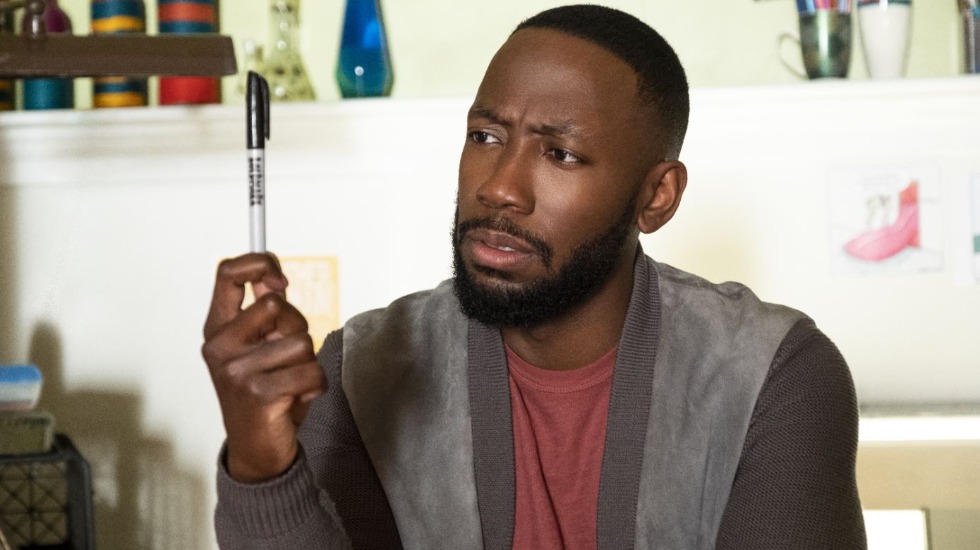
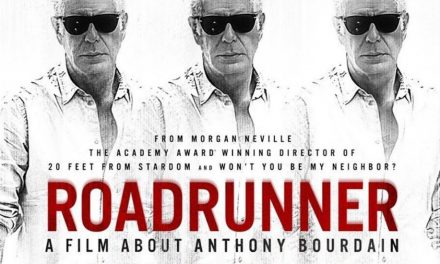
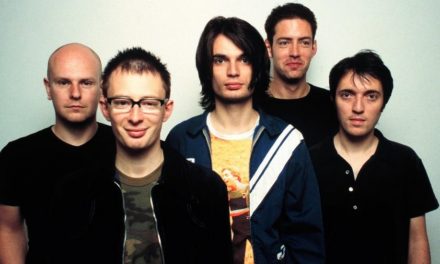
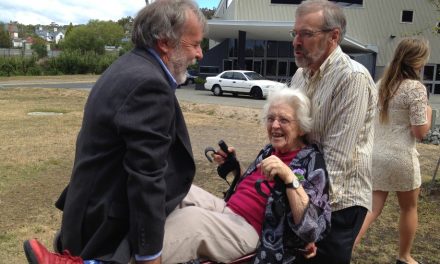
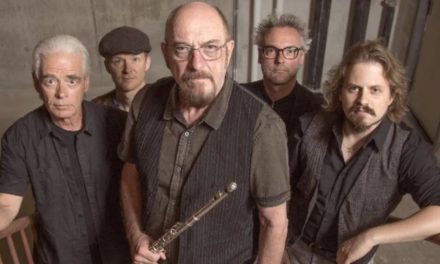

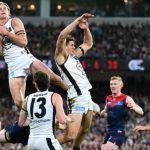




Awsome article and right to the point. I am not sure if this is truly the best place to ask but
do you people have any ideea where to employ some professional writers?
Thanks in advance 🙂